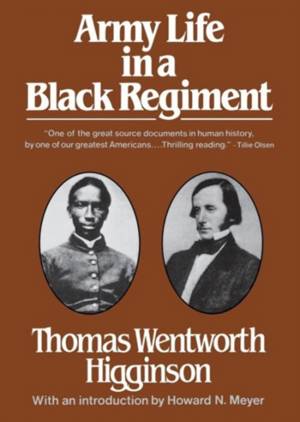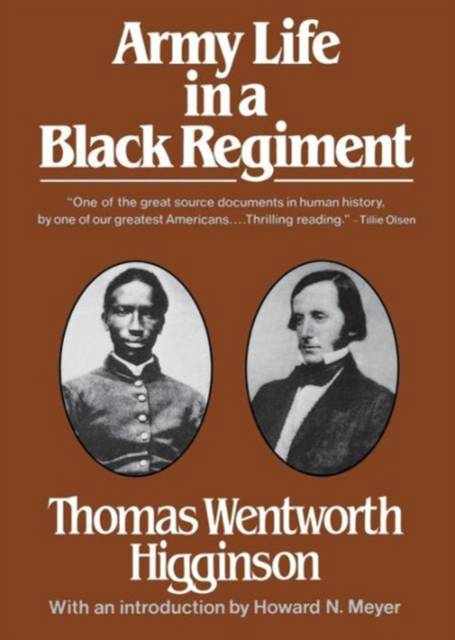
Bedankt voor het vertrouwen het afgelopen jaar! Om jou te bedanken bieden we GRATIS verzending (in België) aan op alles gedurende de hele maand januari.
- Afhalen na 1 uur in een winkel met voorraad
- In januari gratis thuislevering in België
- Ruim aanbod met 7 miljoen producten
Bedankt voor het vertrouwen het afgelopen jaar! Om jou te bedanken bieden we GRATIS verzending (in België) aan op alles gedurende de hele maand januari.
- Afhalen na 1 uur in een winkel met voorraad
- In januari gratis thuislevering in België
- Ruim aanbod met 7 miljoen producten
Zoeken
€ 36,95
+ 73 punten
Uitvoering
Omschrijving
In 1862 military necessity enabled Secretary of War Edwin M. Stanton to pry from a hesitant President Lincoln the authority to enlist black troops in the Union army. The pioneer regiment of ex-slaves was to secure the beachhead tenously held at Beaufort, off the South Carolina coast. Within a year, Lincoln was to hail the enlistment of black soldiers, which he had earlier resisted as "revolutionary," as the "heaviest blow yet dealt the rebellion." The abolition of slavery, unthinkable in 1861, was to be inevitable by 1863.
The commanding officer chosen for the First South Carolina Volunteers was Thomas Wentworth Higginson, a militant human rights activist, writer and lecturer, and former Unitarian minister. "In all the land," writes the historian Ray Allen Billington, they "could have found no one better for this assignment." Higginson was an excellent strategist and administrator who combined firmness with warmth and charm. Closely watched in the nation's press by both friends and foes of the undertaking, he soon shaped a first-class regiment.
Army Life in a Black Regiment is Colonel Higginson's stirring account of his two years at Camp Saxton, recording the immediate effect of a decision that proved crucial to our survival as a nation and that ultimately shaped constitutional history. It is both a literary masterpiece and a unique historical document.
The commanding officer chosen for the First South Carolina Volunteers was Thomas Wentworth Higginson, a militant human rights activist, writer and lecturer, and former Unitarian minister. "In all the land," writes the historian Ray Allen Billington, they "could have found no one better for this assignment." Higginson was an excellent strategist and administrator who combined firmness with warmth and charm. Closely watched in the nation's press by both friends and foes of the undertaking, he soon shaped a first-class regiment.
Army Life in a Black Regiment is Colonel Higginson's stirring account of his two years at Camp Saxton, recording the immediate effect of a decision that proved crucial to our survival as a nation and that ultimately shaped constitutional history. It is both a literary masterpiece and a unique historical document.
Specificaties
Betrokkenen
- Auteur(s):
- Uitgeverij:
Inhoud
- Aantal bladzijden:
- 288
- Taal:
- Engels
Eigenschappen
- Productcode (EAN):
- 9780393301571
- Verschijningsdatum:
- 1/05/1984
- Uitvoering:
- Paperback
- Formaat:
- Trade paperback (VS)
- Afmetingen:
- 124 mm x 188 mm
- Gewicht:
- 240 g

Alleen bij Standaard Boekhandel
+ 73 punten op je klantenkaart van Standaard Boekhandel
Beoordelingen
We publiceren alleen reviews die voldoen aan de voorwaarden voor reviews. Bekijk onze voorwaarden voor reviews.









